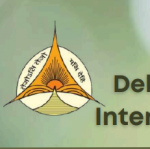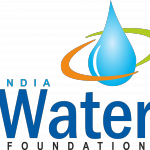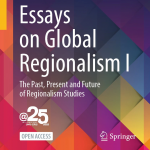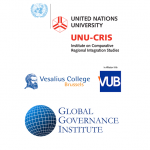Review: Graduate Student Workshop - ‘Promoting Peace’ in Theory and Practice: The role of Conflict Resolution, Diplomacy and Mediation
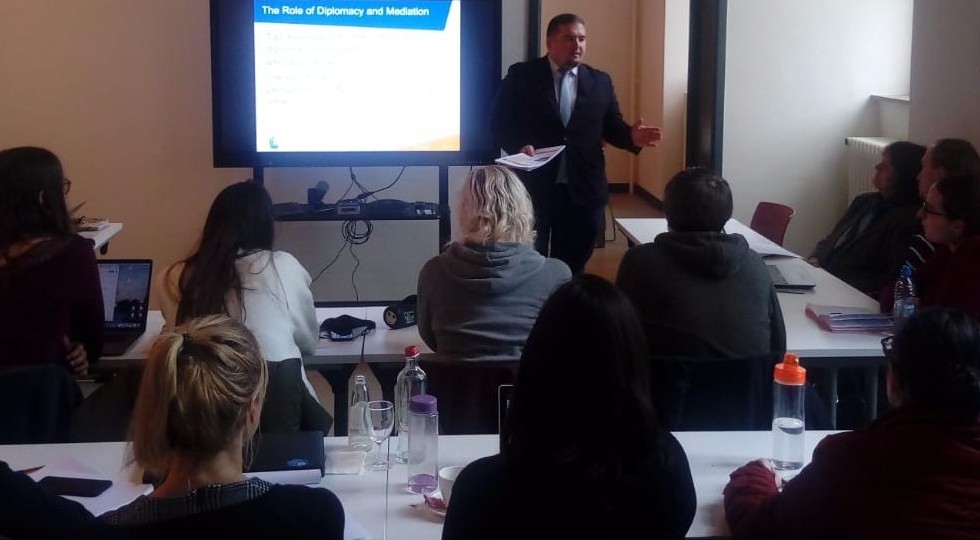
On Friday November 23rd, 2018, the Vesalius College of Global Affairs, in collaboration with the Global Governance Institute and UNU-CRIS hosted an all-day student graduate workshop, entitled ‘Promoting Peace’ in theory and practice: The Role of Conflict Resolution, Diplomacy and Mediation. The keynote speakers of the workshop were Professor Joachim Koops (Professor of International Affairs at Vesalius College of Global Affairs and Director of the Global Governance Institute, Brussels), Mr. Holger Osterrieder (German Diplomat, Expert in the EU EEAS’ Conflict Prevention, Mediation and Peacebuilding Section and former Deputy Head of Mission for UN Operations in Mali and Mongolia as well as Adjunct Professor of International Affairs and Diplomatic Practice at Vesalius College) and Mr. Halil Kosumi (United Nations Liaison Office for Peace and Security, UNLOPS and former Project Officer with UNDP, Kosovo as well as OSCE/UNMIK).
Professor Joachim Koops led the workshop with the theories of international relations, including the origins and positions of realism, liberalism, constructivism and critical theory in the promotion of peace. Professor Koops also introduced the concepts of peace studies and global governance, stating their origins through to their contemporary use.
Mr. Halil Kosumi’s presentation was centered on the practical role of diplomacy and mediation in conflict resolution. Focusing on the Balkans region, Mr. Kosumi cited his experience in Kosovo. He discussed the successes and challenges the UN and OSCE field operations faced in conflict resolution and the promotion of peace in Kosovo. Mr. Kosumi gave the following recommendations for further peace and security operations in the Balkans (that were successful in Kosovo):
- Utilization of the UN standby team of mediation advisers
- A focus on building trust and cooperation between the locals and the field operation; the need for close cooperation between religious leaders (and/or other influential citizens) and the field operation in conflict resolution.
- NGO formation and capacity building of the formed NGOs.
Mr. Holger Osterrieder’s presentation focused on Diplomacy in the 21st Century. He discussed what it means to be a diplomat in the 21st century, and cited the new ways of working in diplomacy, taking into consideration emergent factors of regional integration, professional diplomacy and crises. Mr. Osterrieder also highlighted the new challenges faced in diplomacy - security concerns, the internal and external nexus, regional dimensions of conflicts and the new evolving concepts influencing diplomacy, power sharing, mixed mediation teams, defense and security, reconciliation, justice, humanitarianism and economic development. He practicalized his presentation by citing his experience in negotiating and mediating the peace agreement between the Tuareg MNLA and the Malian Government in Mali.

